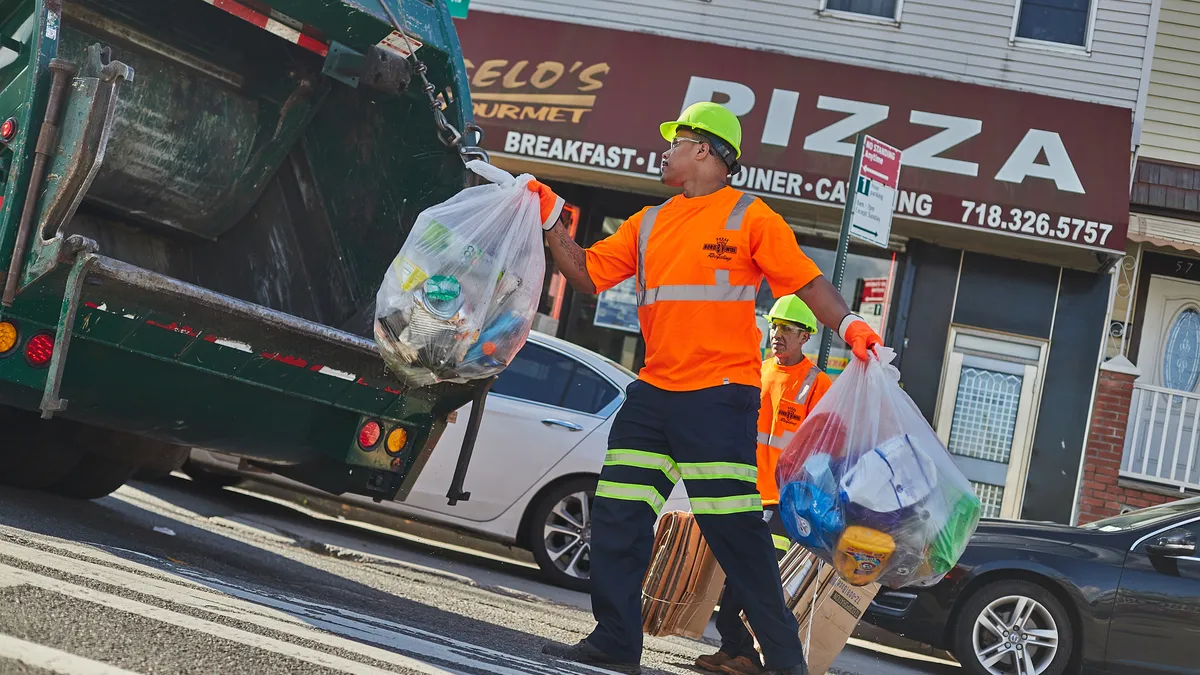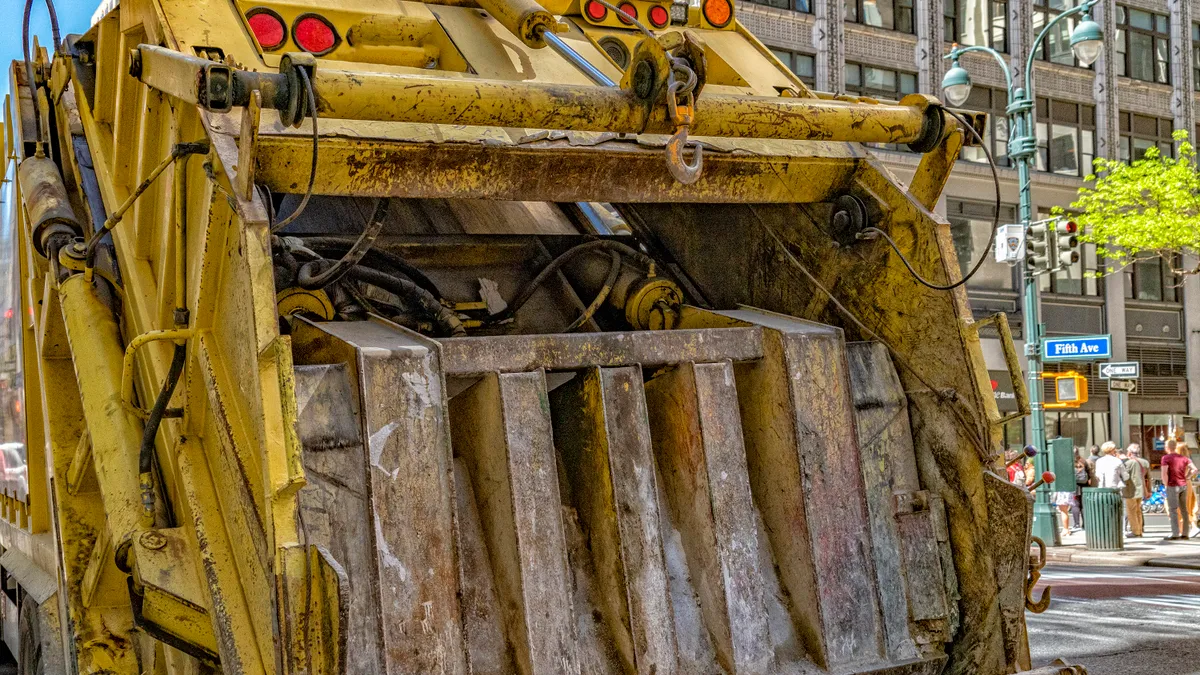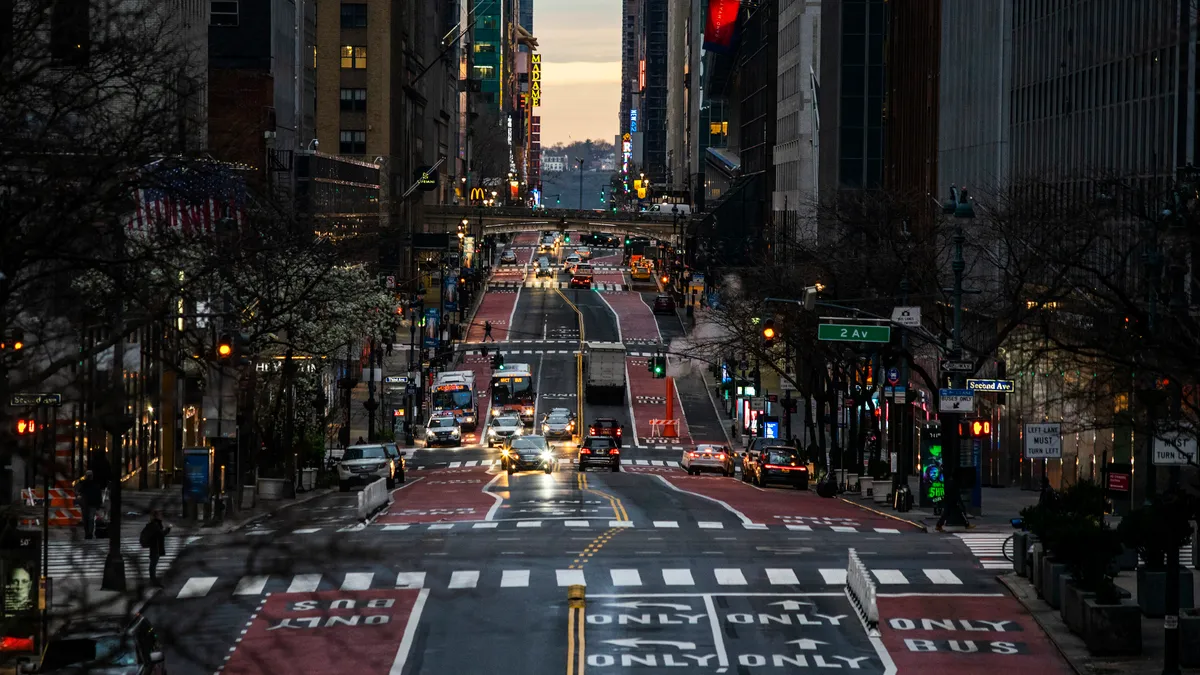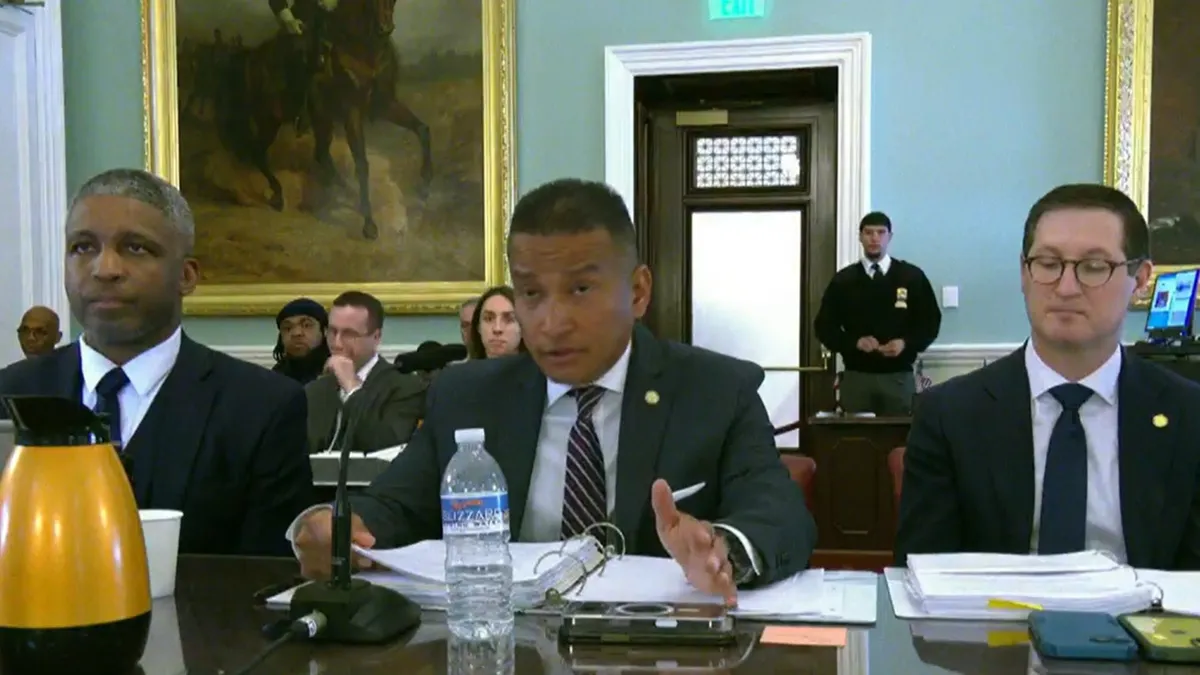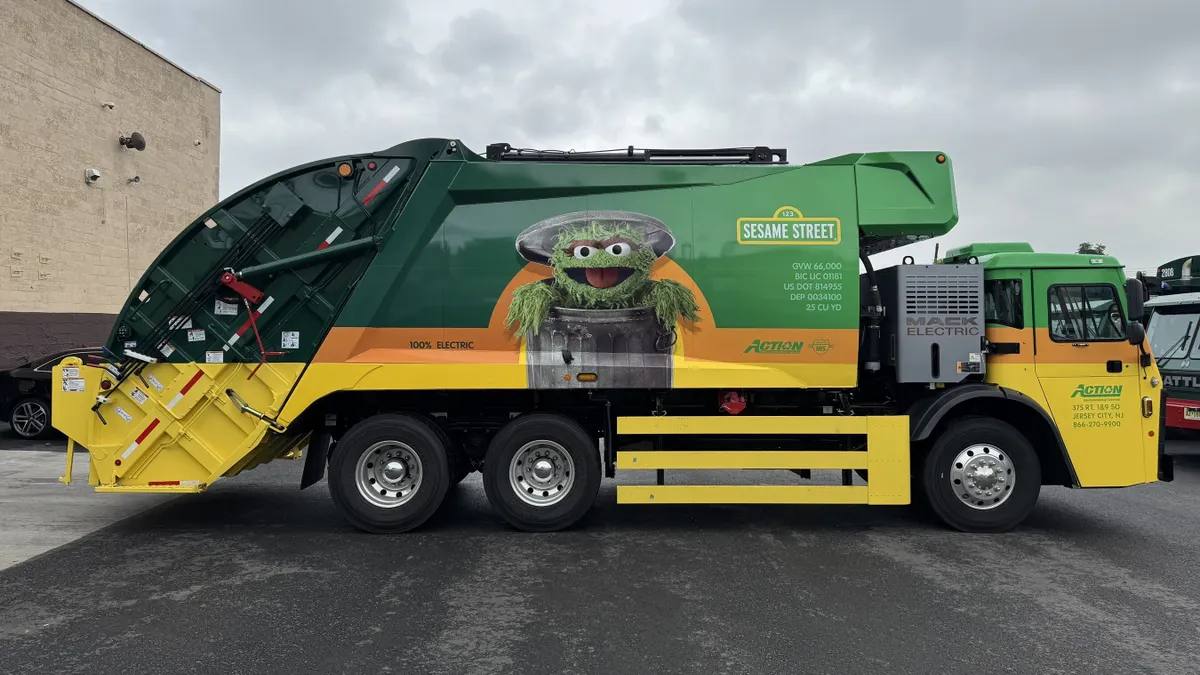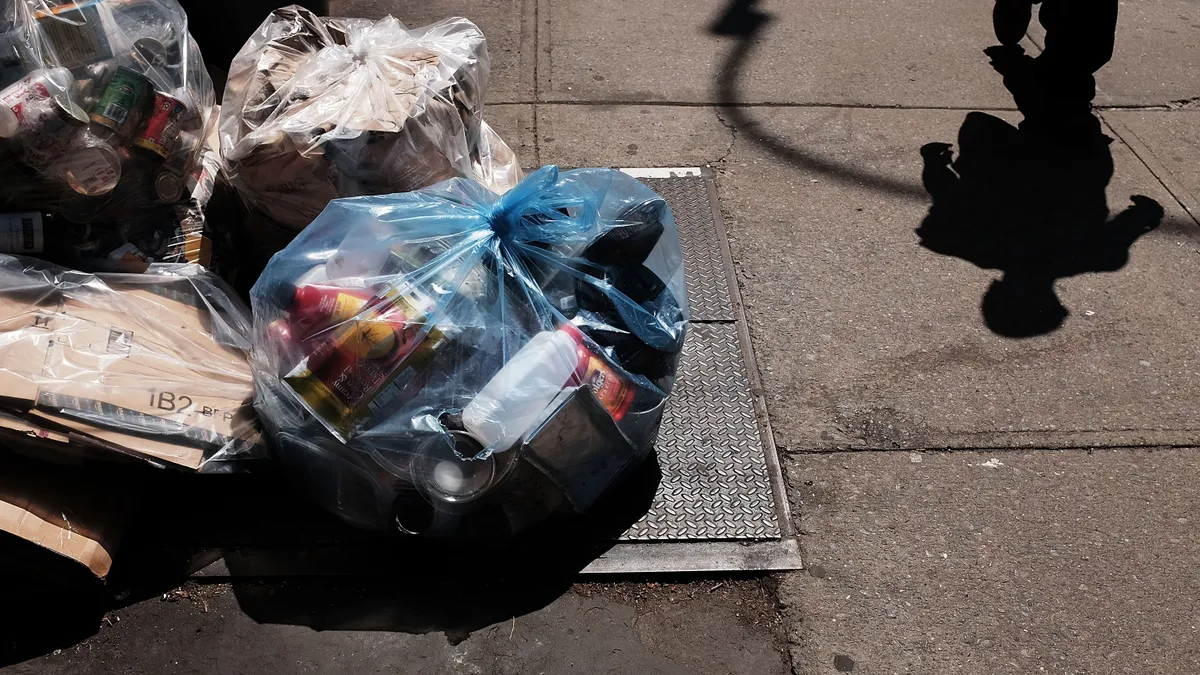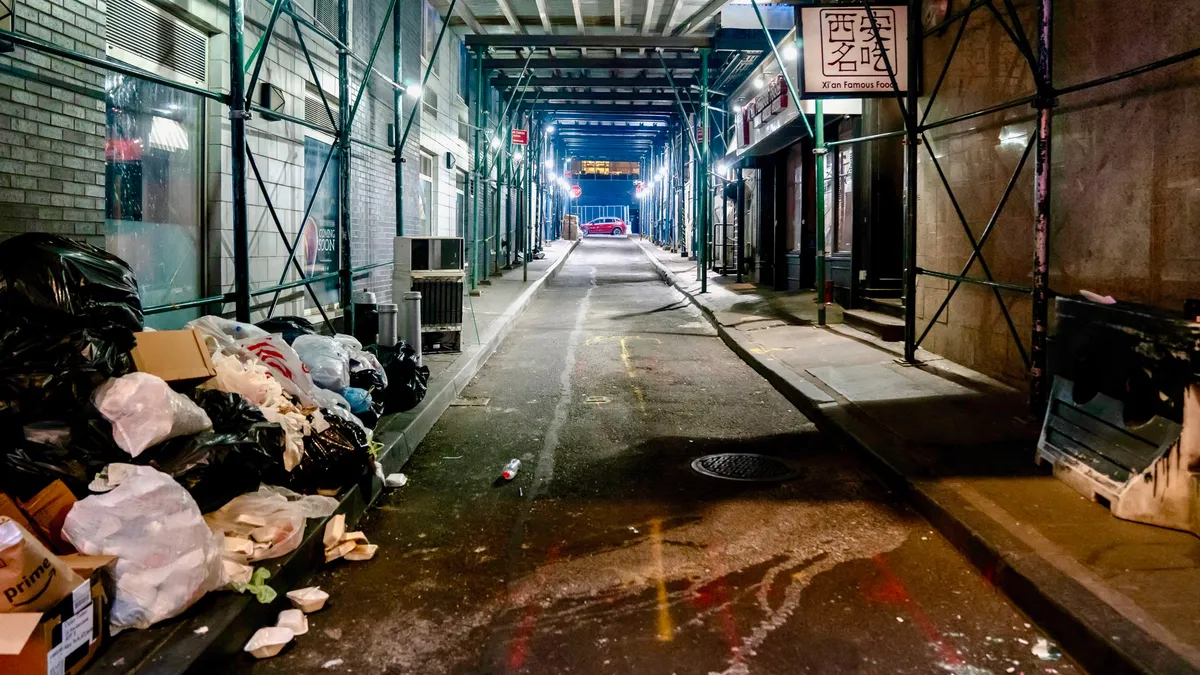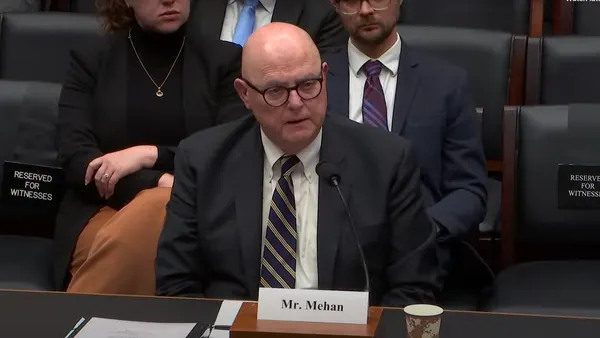After years of preparation, the bids are in for New York City’s commercial waste zone system. By the end of the year or early 2023, haulers expect to learn if they’ve won this once-in-a-generation opportunity to operate in one of the nation’s most complex waste markets.
Last month, companies submitted bids for the second and final part of a request for proposals to collect waste in 20 different zones within the city. New York’s Department of Sanitation could ultimately award up to three contracts per zone, plus five citywide contracts for containerized waste. Contracts will run for 10 years, with the potential for extensions. Companies that do not win those contracts will effectively be cut out of the putrescible waste hauling market, unless they end up working as a subcontractor for another awardee.
While DSNY published the list of 50 qualified bidders for the RFP’s first portion, it declined to share how many final bids it received. It also denied a Freedom of Information Law request for the one-page receipts sent to each bidder, which do not contain proprietary information, “because the release of the requested records would impair present or imminent contract awards,” it said.
Based on conversations with multiple sources outside of the agency, the final number of bids received is estimated to be in the thirties or lower. This does not include subcontractors or organics microhaulers. The qualified bidder list included WM and Winters Bros. Waste Systems, which don’t currently operate in the New York hauling market, but representatives for those companies declined to comment or didn’t respond about whether they submitted final bids.
Getting ready
For some of the market’s largest bidders, including publicly traded companies such as Waste Connections and large regional entities such as Interstate Waste Services (operating locally as Action Environmental), preparing for municipal bids is common practice. But for many local haulers, this was the first large RFP they had ever bid on. Preparing their bid packages, while looking for ways to make their businesses more attractive and also maintaining daily operations in an inflationary environment, has been all-consuming.
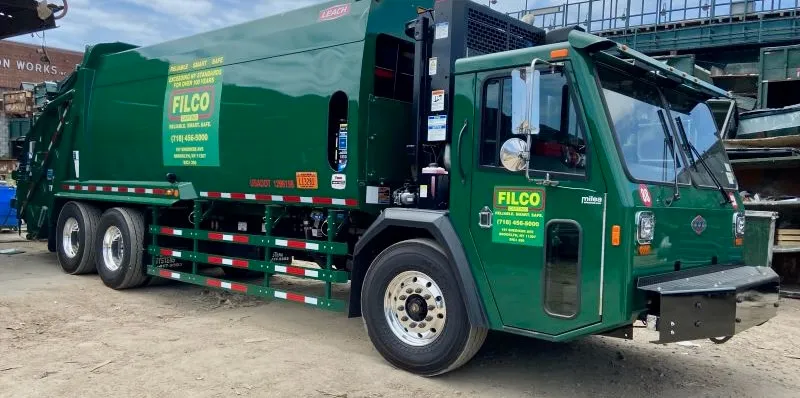
Brooklyn-based Filco Carting has taken the unique approach of seeking to grow its profile with radio ads and beach cleanups in recent months. While none of this directly affects the bid selection process, CEO Domenic Monopoli said he wants to make sure New Yorkers are aware of his 110-year-old company, which services locations for several large utility companies.
“It’s name recognition, because who knows the garbage guys? We’re night owls,” he said.
After seeing much of his business evaporate in March 2020, like it did for competitors, Monopoli estimated about 85% to 90% of business is back and that could improve further in September. Filco has ordered 21 new trucks from Battle Motors in anticipation of receiving a contract, with the potential to pilot electric trucks in the future, and it’s moving into a larger office space.
Unlike some other bidders, Monopoli chose not to team up or trade routes with competitors to enhance his geographic position ahead of the bid submission. Instead, he focused on Filco’s existing operations with the hope of growing business by 20% or more if the bid is successful.
"I had a team of people working eight hours a day for the last four months to get it done,” said Monopoli of Filco’s bid. "I don't see how the smaller operator does it."
The bid process was complex, with seven addendums to answer ongoing questions and a long list of required information. During a WasteExpo panel in May, Gershman, Brickner & Bratton’s Ashlea Smith described the RFP as one of the most complex of the hundreds she’s dealt with. Smith, GBB’s senior consultant and marketing manager, estimates the final number of bidders will be lower than 50.
“From my understanding of who’s teaming with who, who is deciding to take a back seat and maybe focus on their business efforts elsewhere, we’re going to see between 20 and 30 part two proposals,” said Smith.
Tom Toscano, CEO of Queens-based Mr. T Carting, recalls one of the last flights he took before the pandemic lockdown in 2020: It was to meet with a prospective consultant in anticipation of a bid process that was originally supposed to start that year, after the commercial waste zone law was signed in November 2019.
He selected GBB to help prepare a joint venture submission with Boro-Wide Recycling Corp. that would see the two local companies merge pending the receipt of a contract. No other joint venture proposals have been publicly confirmed.
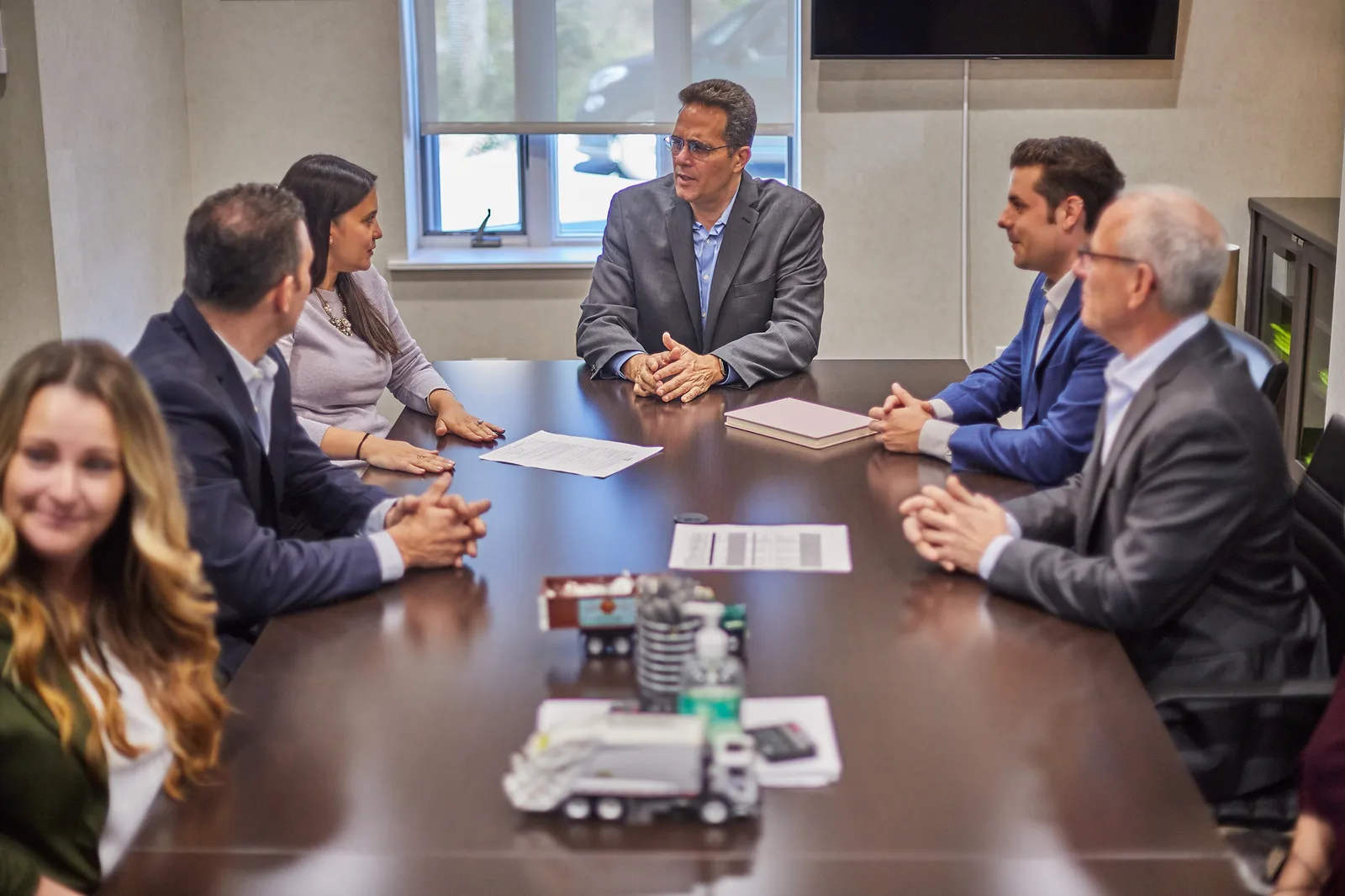
For Mr. T and its affiliated businesses, activity has largely returned to pre-pandemic levels, Toscano said, but he’s also been rethinking the company’s strategy.
"We learned from COVID a lot of the accounts we just weren't making money on,” he said, referencing different customer categories that were affected. "Most of what went was the heavy restaurant and bars.”
Larger accounts may have been subsidizing some of those heavier stops and servicing those types of smaller accounts has become even more complicated amid inflation. Toscano said a provision in the RFP allowing a new pricing structure based on collection frequency and weight may help in the future but, in the meantime, haulers are operating under the city’s current pricing regulations.
While the city’s Business Integrity Commission recently approved a 9% increase to the rate cap for hauling charges, and it scheduled a hearing for next month to assess another, the spike in diesel prices and related disposal costs has been challenging. While some prospective bidders have transfer stations in the city, many (including Mr. T and Filco) don’t own landfills.
Dominic Susino, chief financial officer of Queens-based American Recycling Management, said higher costs have made companies like his — transfer station operators that don’t own landfills — the “mediators” between haulers, which are affected by tip fee increases, and long-haul drivers, which feel higher fuel costs make it less profitable for them to make the trip to disposal sites.
American Recycling considered bidding on a zone contract, as the company used to do more hauling, but it ended up just bidding on a citywide containerized waste contract, Susino said.
“We don't want to be in competition with our customers. If we were bidding [for] the zones specifically, then we're going after the same work our customers are going after,” he said. "Right now, it’s better to just stay with your core, and focus on that when things are getting a little tougher out in the general environment.”
Each company had its own strategy, but many have been looking to enhance their chances in recent months by reassessing routes, reinforcing safety training or making new investments.
"Waste Connections and Royal [Waste Services], for example, they already have really robust safety programs, and they do rationalize their routes as best they can, so they really brought it to the next level in preparation for the bid,” said Bernadette Kelly, a trustee on the Teamsters Joint Council 16 executive board.
A big part of the process has been guessing what may happen in certain boroughs, especially office-heavy Manhattan, in the years ahead. For Recycle Track Systems — a third-party service provider — office buildings still range widely in terms of volume, whereas stadium, restaurant and hotel clients are all largely back up to their pre-pandemic volumes, according to CEO Gregory Lettieri.
"If [preparing the bid] was challenging for us, and I've got two attorneys on staff, then you would think that the average hauler was going to struggle through that,” Lettieri said, adding that bidders were trying to predict “what does the future of this city look like, really, for the next 20 years?”
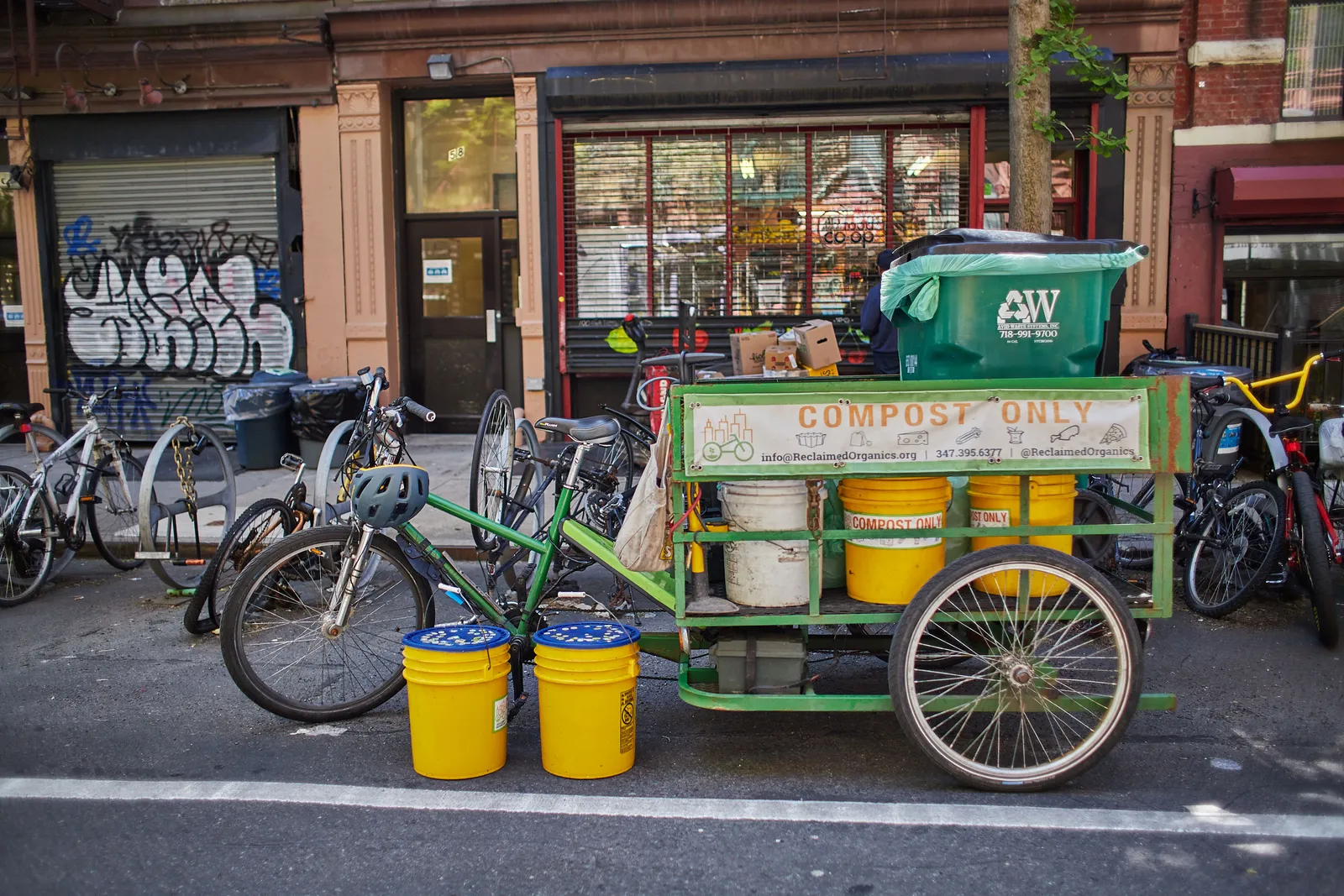
Ensuring sustainable competition
City officials have previously said the goal is for haulers of various sizes to win contracts as long they can meet the requirements. The microhauler category was specifically envisioned within the law as a way to create opportunities for local, sustainability-focused businesses, but according to BIC the agency has only approved one microhauler license to date, with one more pending.
Common Ground Compost, the one approved microhauler, specializes in small-scale organics collection via cargo trikes. Jonas Schaller, director of its microhauling division, said collections are tailored to niche clients and max out at two 64-gallon totes per trip.
Pre-pandemic, this often meant “white-glove service” for clients in larger office buildings that didn’t have an organics collection option through their property management companies. Schaller said it wasn’t uncommon for Common Ground workers to spend 20 minutes traveling up to a specific floor to collect a small amount of material and change out the bag, adding that “no hauler would be willing to do stuff like that for an individual client.” When the pandemic hit, many customers paused service or called for one-time cleanouts.
“We would go into offices and just compost all of their snacks that they had laying around,” said Schaller, citing examples of 40 pounds of coffee beans or 20 pounds of gummy bears.
Some clients have since scaled down their collections due to hybrid work models, and the office sector has yet to fully recover. Common Ground still has an active client base, but Schaller said operating costs can be challenging for smaller entities. While Common Ground was able to meet BIC’s liability insurance requirement because the company already had coverage for its consulting business, he said others may not be able to pay for such coverage.
Asked about this potential deterrent, BIC said it is always open to working with microhaulers, but it can’t change the requirement.
“The microhauler license features a significantly reduced fee, reduced insurance requirements, and fewer regulatory obligations compared to the traditional license application,” said Nicole Mathias, BIC’s director of policy, in a statement. “BIC recognizes the small-scale operations that characterize microhauler businesses. Proof of adequate insurance, including workers compensation insurance, is a requirement for all BIC licensees and registrants, because ensuring workers in the trade waste industry are protected is important regardless of the size of the hauling operation.”
New York City Council Member Sandy Nurse — who founded microhauler BK ROT and chairs the council’s sanitation committee — said she’ll continue working to "ensure that microhaulers are able to operate and compete,” as "they're newer businesses trying to enter into an old business that requires a lot of capital and equipment to scale up.” Nurse pointed to a limitation on microhaulers using transfer stations as one issue.
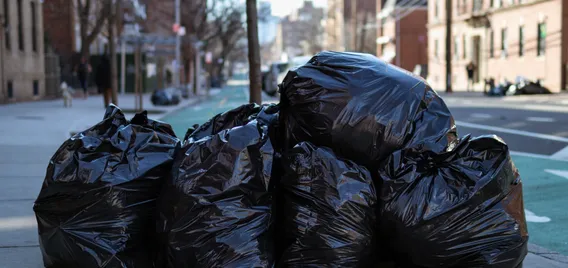
Looking ahead
DSNY and its consultants will be reviewing bids well into the fall, and contract awards could occur by the end of the year or early 2023. No hauler can get more than 15 zone contracts and one citywide contract.
“It’s an important and interesting time because, as we know, once the process is done and the RFP and the bids go through, we’re going to have a 10-year contract,” said Maritza Silva-Farrell, executive director of the Alliance for a Greater New York — a member of the Transform Don’t Trash coalition that advocated for the law. “That has been the biggest concern, in thinking about who are going to be the carters, which companies are going to be getting awards and how do we make sure that everything we asked for in the law is going to become a reality.”
Nurse, who supported an exclusive model with one hauler per zone for greater accountability, said she hopes haulers’ bids were focused on providing high-quality service. She added that for bidders, predicting economic recovery trends would be a challenge. An April survey by the Partnership for New York City predicted that only 49% of workers might be present in the office on an average weekday by September, and the city’s job recovery continues to lag.
"There's a lot of buildings that are empty that had major waste contracts in the past,” said Nurse in late June, pointing to ongoing questions about hybrid work and activity in boroughs outside of Manhattan. “There's a shift happening as this major reform is going to take effect. It’s not clear how exactly New York City will recover economically, and that will impact the way waste is generated."
In the meantime, haulers are also working on contingency plans. Monopoli recently applied for an A901 license for Filco to do work in New Jersey. He called it “the next frontier for us” and expects to expand regardless of the New York contracting outcome. Other haulers have discussed the possibility of similar plans for New Jersey or areas outside of the city, such as Long Island.
For all the stops and starts since the commercial waste zone law was signed in 2019, and the inflationary roller coaster of recent months, some are glad the process is happening later than originally intended.
"If everyone had submitted the bid when it was originally due, I can imagine where the number would have been, but then we'd be staring down the barrel of a gun right now,” said American Recycling’s Susino, citing a 15% to 20% increase in certain costs this year. “Now it’s a waiting game for everyone.”
Stay tuned for a follow-up story about lessons learned from the Los Angeles franchise system and implementation plans for New York’s system.


